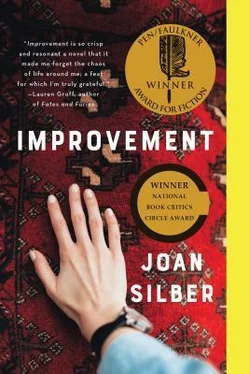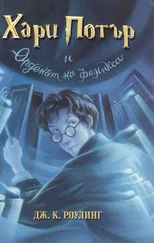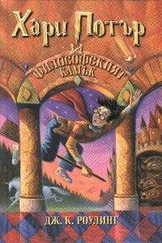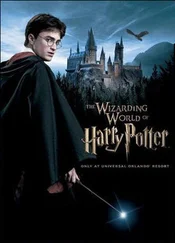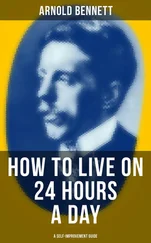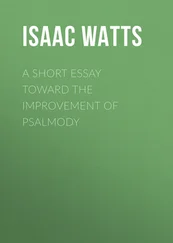It was February before the lawyer let him know that the money from the insurance company had come through at last. “It may not be what you hoped for,” the lawyer said, “but I don’t feel you have grounds to be disappointed.” So it wasn’t anywhere near what it should’ve been but it was something. Teddy could put the check in the bank and pay off some of his debt. Some.
“They’re sharks,” April said. “They don’t care about us. Your lawyer too, he’s a shark.”
Leah was surprised that anything had been paid at all. “Reason to celebrate,” she said. Teddy said he wasn’t going out for any big dinners with clinked glasses. He just wanted to not think about it anymore. Was that too much to ask? He just wanted to drive his rig.
“Right you are,” Leah said. “It’s done. Over and done.”
Two months after he’d written Sally his definite decision, he found himself with a load of soup cans heading south on I-95, not far from her neck of the woods. He wasn’t going there; he didn’t have to go there. But he did stop at the rest area outside Baltimore, which was really one of the better rest stops. How familiar it was now, the signs and the stores and the now-spindly borders of bushes.
It was midafternoon, a bleak winter day. He needed coffee, he needed a piss and a break from the highway, and he was pleased to sit in the café, taking his time over a donut. He stayed at the counter close to an hour, stalling before he got back on the road; he seemed to think of this highway entrance as a devil’s pass.
April had those questions about whether he’d ever almost died. Of course he had, during certain years of his life. Once when he took a beautiful drunken walk across a frozen pond and midway the ice cracked and broke. Once when he was in a car with a woman who drove them off the road into a gully. Once when he was in a fight with a guy who was crazier than he seemed. He’d had a good time when he was young, but in certain respects youth was overrated.
Okay, he had to get back in his truck now, no matter what, and he got up and made his way across the cold parking lot. Inside the truck, he sat again, looking out through the windshield. Nobody had forced him to stop at this stop. He missed Sally, the pang was worse here, her voice was in his head, more than her voice. He was never going to see her again, and that was the way it was.
Teddy was a good driver, nobody said he wasn’t, and when he got the engine started and had the rig out of the parking area, he moved very slowly, looked all the ways he had to look, slipped onto the ramp and waited as long as he had to before he rolled into traffic, thinking all the time of the unlucky boy driving that crapmobile car, rushing to get to some girl.
One thing Kiki knew—her niece was having some sort of trouble with the boyfriend. There was no reason for her to stay at Kiki’s apartment on some bullshit excuse about a playground—was it to get away from him? And at their last lunch, Reyna had been in such a hurry to answer his text, as if it didn’t pay to make him wait. Not a good sign.
Kiki knew the risks of lecturing her niece, giving too much direct advice, but maybe this was the time. And Reyna had long pestered her with questions about Osman and the invisible years of marriage in Turkey—was that her way of trying for guidance? Kiki had always made a point of not speaking against Osman (she was less sour about marriage than Reyna’s parents), which confused Reyna. “What was wrong with him? You never tell me,” Reyna said, “why you left.”
The best time with Osman had been the years in Istanbul. Most majestic of cities—she used to stand at the window at dusk to watch crowds of gulls swooping in arcs around the spires and minarets. Dusk in winter was when she waited for Osman to come home, listened for footsteps in the street below. But smitten though she was—rightly smitten—she had never expected it to last.
Was that Osman’s doing? Had he been the older, more serious one? What had he seen in her? He liked her right away, too; they talked three hours that first afternoon, and he’d said how “unusual” she was, in a tone that was extremely sexy at the time.
By now she’d spent a lifetime congratulating herself on choosing Turkey, but it had been a random choice, a place she wandered into off the ferry from Greece. The meeting point of East and West , she wrote to her family. What she intended to say was that it had a strangeness Europe didn’t have, codes she couldn’t guess at but was sure she was learning.
In the old days she and her friend Pat used to walk by the city walls—the old Theodosian Walls—and see gypsy women forage for leafy plants that grew in the dirt near the ancient lines of stones. Greens for cooking. Pat told her you could see that still.
And now everyone was developing a bad opinion of Turkey. The news was full of Istanbul lately, protests against a government plan to destroy a park near Taksim to build a fake-historic shopping mall. Kiki’s TV showed policemen moving in on crowds, using water cannons and tear gas, setting fire to demonstrators’ tents. The coverage went from being jolly, with protestors dancing in lines and waving clever signs, to being horrific, with people shrieking as they fled.
It was too familiar. In the years with Osman, Kiki had written home to her family that the “civic unrest” they were reading about wasn’t really so bad—lots of countries had labor strikes and student riots, nothing special about Istanbul. She really was against worrying; it took a few years before the street actions turned rougher, more chaotic—bombs went off in cafés; snipers fired from rooftops at workers’ demonstrations. Death squads from the right-wing Grey Wolves raided the apartments of leftists to murder them; factions on the left began to favor armed revolt. Kiki refused to be frightened away, but plenty of foreigners were. Nobody was idly wandering into Osman’s shop; his rugs went unbought. There was no need to explain this in her letters, which took forever to get home anyway.
Osman had opinions—pro-labor ones—but he wasn’t ever a participant. How could anyone believe in assassinations? Some of his friends sort of did; they had long discussions into the night that Kiki could not quite follow.
She should’ve tried harder to follow. She always knew more about what Empress Theodora said to Justinian in the sixth century than what was happening a neighborhood away. Where did she think she was? In a tender bower watched over by her Turkish protector? In a guarded harem gossiping with Pat? But her love for the city had been genuine.
Pat still looked the same to Kiki, and how was that possible? More pinched and creased, but not so different—sandy hair cut short in tufts, pert alert face, scratchy voice. She came to the States almost every year and each time Kiki exclaimed at her sameness.
In their very young days in Istanbul, they used to say, “I could never go back, could you?” And Pat had stayed. She had a great apartment, north of Taksim, big and rambling, with casement windows and a terrace that flowed with ivy, leftover from a husband she hadn’t had for twenty years. She had two kids, now grown. Kiki had seen photos of all of them, looming out of emails or sent as snapshots in the folds of letters. She still had one of Pat’s son at maybe nine, a boy warrior in a satin costume with a sequined cape and feather-tipped headgear, all dressed up for his circumcision ceremony. They were really Turkish, Kiki thought. Pat had a whole Turkish life.
On every visit back, Pat said Istanbul was different now, more spruced up and modern, not as clogged with ruined buildings. Every year Pat invited her to come to Turkey again, and every year Kiki said sometime she would.
Читать дальше
